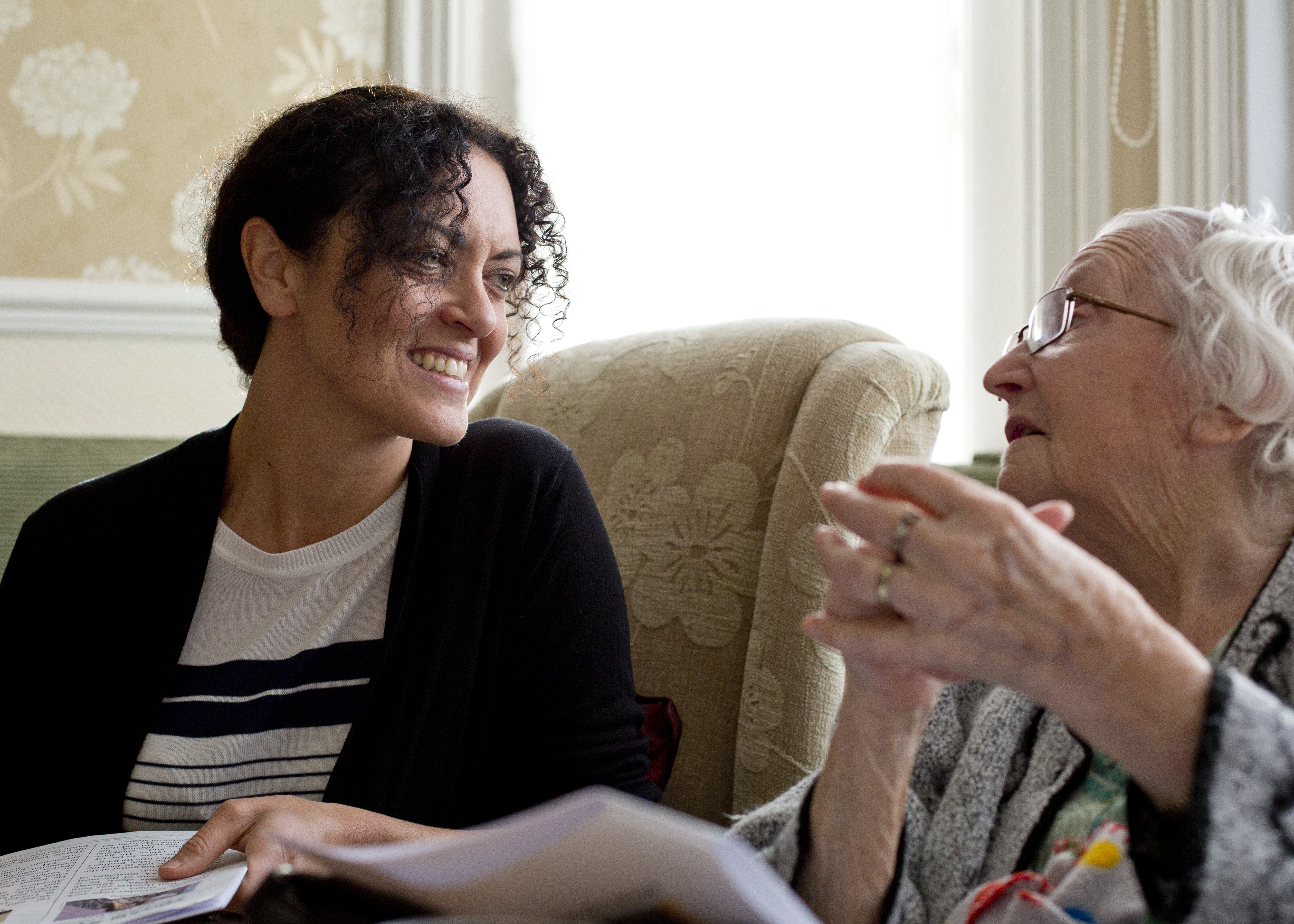General tips for using the Daily Sparkle to make conversations more relaxed and enjoyable…
With thanks to Berkshire Healthcare
We recognise that every person with dementia has their own level of understanding and communicating. Many will be unable to read the Daily Sparkle independently. The tips provided here will help you to use your Daily Sparkle more effectively; helping both you and the person you are sharing it with to have an enjoyable and satisfying session.
- Everyday tasks take up a lot of energy (eg washing/dressing) so try to leave a gap between Daily Sparkle sessions and your other activities to avoid fatigue.
- Check that glasses and/or hearing aids are available and in good repair.
- Minimise distractions (eg turn off TV/radio) as background noise can make it harder to find words and can interfere with concentration, particularly if a person has difficulty hearing. It is easier for a person with dementia to focus on one thing at a time.
- Try to face the person directly when talking. It is much easier for them to understand you if they can see your mouth and facial expression and you can also see whether they have understood your message.
- Allow time for a person to find the words they want independently. Encourage them to focus on the the most important word/s, rather than trying to put together a whole sentence.
- Try prompting, but only if you think you know the word a person wants – and only if they are happy for you to do this. Do not provide the whole word. They will get more satisfaction if you help them to find the word themselves. For example, don’t say: ‘Stamp’, say: ‘When you address an envelope, you then have to stick on a s…’, allowing them time to complete the word.
- Let the person know if you have not understood. Don’t pretend that you have understood as this is likely to increase their frustration. They may know by looking at your face whether you have understood or not!
- Using questions that need just a Yes or No answer can help as long as a person has understood the question. You may find that adding a gesture such as thumbs up or down, or a choice of written Yes and No is helpful. Encourage pointing to check that a response is reliable.
- Try offering a choice of only two answers (eg tea or coffee). Write the answers down and point to each answer in turn as you say each one. Ask the person to point to the answer they want.
- You can also try using a choice of two pictures if written words are too difficult. Make sure the writing/pictures are big enough if the person has poor eyesight.
- A person with dementia may struggle to find the words they want, but the thoughts in their head may be clear. Even when the words won’t come out, paying close attention to facial expressions and tone of voice can help you to establish what they want to say.
- Use a total communication approach – try supporting your conversations using non-verbal methods such as gesture, drawing and/or facial expressions.
- Talking about things in the here and now is natural, and much easier for a person to follow than more abstract things. Having a printed copy of the Daily Sparkle in front of you is helpful.
- Many people with dementia have difficulty concentrating on two things at once. If having a break, allow time to finish eating or drinking before continuing. Eating and talking at the same time could lead to choking.
- Take your time and be prepared to repeat questions and information to make sure you have understood each other.
- Try and work out the topic that the person wants to talk about, for example: Were you trying to tell me something about family?…….money?……..eating and drinking? Encourage a Yes/No response. If this is usually accurate you might like to try adding a something else option.
- When talking, use short sentences and simpler, everyday words which the person can hang on to for a moment. Most people with dementia cannot hold as much information in memory as they used to. They need longer to prepare their responses as their brain is probably working much more slowly now.
- If a person with dementia makes a statement which is incorrect, avoid arguing and move on.
- Even simple conversations will take much longer than you expect. That’s fine and quite normal. Sometimes you just won’t get through to each other and may have to abandon an activity or topic. You can always agree to come back to it later.
We hope that you enjoy using your Daily Sparkle. Have fun and please let us know how you get on!




